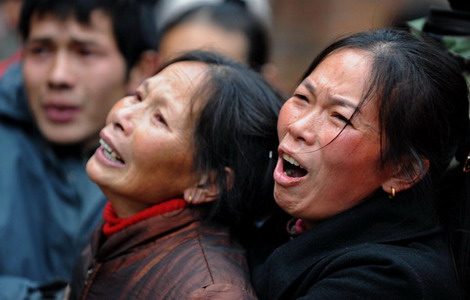Taiwan more open to mainland students
Updated: 2012-01-16 21:22
(Xinhua)
|
|||||||||||
TAIPEI - Taiwan universities and colleges have relaxed admission rules for Chinese mainlanders looking to apply for graduate and doctorate programs over the straits, allowing them to choose up to five majors on each application and removing the limit on applicants' age, authorities said Monday.
Meanwhile, online applications started on Monday and mainland students are able to choose from 81 schools, including 48 public and 33 private schools in Taiwan. The maximum number for enrolment is 2,000.
Taiwan universities, including the top-ranked Taiwan University, opened their doors to mainland students in 2011, in line with an initiative to increase cross-Taiwan Straits understanding among students from both sides.
A total of 937 mainland students sought academic degrees in Taiwan last year.
According to the new regulations designed for the island's universities to absorb more mainland students, the previously imposed age limit, banning applicants above 40 years old, has been lifted.
Chang Hung-te, director of the University Entrance Committee for Mainland Students, told a press conference that mainlanders with undergraduate degrees obtained from 41 elite mainland schools, and from Beijing, Shanghai, Jiangsu, Zhejiang, Guangdong and Fujian facing Taiwan across the Straits, are eligible to apply. The six eligible regions are all comparatively developed municipalities or provinces.
The restriction of one field of study per application has been lifted, said Chang, adding that the registration period has been moved forward from mid-April to mid-January so that students can apply right after the mainland graduate school entrance examination. He attributed the low number of enrollments last year to the late start of registration.
Admission notices will be published on April 17, about the same time as mainland graduate schools, "giving students more time to consider their options," Chang said.
The move was considered as Taiwan schools compete against their mainland counterparts for students, as the island's slow population growth and saturated educational market make it difficult from some Taiwan universities to stay afloat.
Hot Topics
Kim Jong-il, Mengniu, train crash probe, Vaclav Havel, New Year, coast guard death, Internet security, Mekong River, Strait of Hormuz, economic work conference
Editor's Picks

|

|

|

|

|

|







